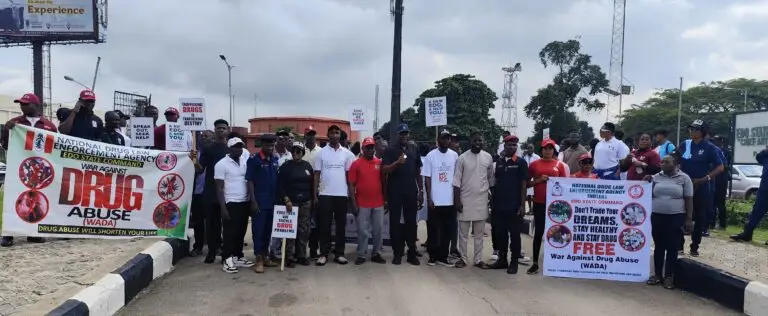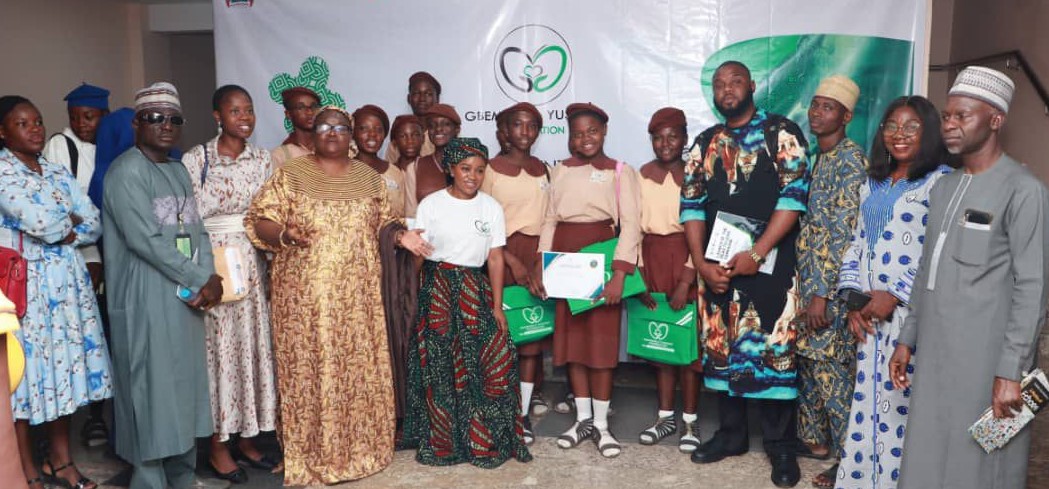Edo Govt calls for collective action against drug abuse, trafficking
Campaign
By Usman Aliyu
Edo Government has called for collective action against drug abuse and trafficking in the state, with a renewed focus on public education, prevention, and community rehabilitation.
Mr Andrew Oghenovo, Senior Special Assistant to Gov. Monday Okpebholo on Drugs and Illicit Trafficking Control made the call on Wednesday during an anti-drug abuse rally in Benin.
The rally featured participation from NDLEA personnel, other security agencies, students of the University of Benin, and civil society groups.
The campaign, which kicked off from the King’s Square at the popular Ring Road, passed through the Edo House of Assembly, Oba Market, and terminated at the Benin Central Motor Park at Obakhavbaye area in the city.
Addressing commuters, traders and passersby during the rally, Oghenovo said the state government had invested in the prevention of drug abuse as part of its strategic response to the growing menace.
“The governor has promised that he’s going to build a rehabilitation centre where anybody affected can seek help.
“The centre will treat them and teach them work — tailoring, barbering, anything at all,” he said.
The Okpebholo’s aide stressed the state’s commitment to reintegration and skill-building for affected individuals.
“We’ll train you, set you up, make you become useful to society and your family,” he said.
At the Edo House of Assembly, NDLEA Edo Commander, Mr Mitchell Ofoyeju, said the rally was to commemorate the 2025 International Day Against Drug Abuse and Illicit Trafficking.
Ofoyeju reiterated the importance of prevention, in line with the year’s global theme: “The Evidence is Clear: Invest in Prevention.”
“We are drumming up support to back up this theme, which lends credence to the fact that the war against drugs, is not only through enforcement, arrest, seizure, and prosecution.
“But it can also be through public enlightenment and campaigns to educate people concerning the ills inherent in drug trafficking and abuse,” he said.
He asserted that drug control was at the centre of crime control, and also a key pet project of Gov. Okpebholo, which had to do with kidnapping and cultism.
“I assured the lawmakers that I am going to sanitise and dislodge those hoodlums at Ihama Road.
“We have already taken two; I directed they should be prosecuted, and we are going to continue through constant raid operations,” he said.
Responding to the campaign, Speaker of the state House of Assembly, Blessing Agbebaku, pledged legislative support for the anti-drug efforts and condemned the rising presence of open drug dens in the state capital.
“I want to commend you for the rally to sensitise the public about the effects and hazards of drugs.
“Of a truth, we need to join you and the agency because we represent every constituency,” the Speaker said.
He revealed that the House had already passed a law against drug abuse, stressing, “Drugs can condemn anybody.”
The speaker, however, raised alarm over the drug trade around Ihama Road near the legislative quarters, describing it as “an eyesore” and “the den of drugs in Edo State.
“Even as a member of the House, if you are driving, they will be calling to sell the drugs to you.
“After taking the drugs, you will see them sleeping on the floor like dead persons. I want to appeal to you, please see how you can help us sanitise that area and others.”
He further alleged complicity among some security personnel.
“Let me also let you know that most of the security men also go there to buy,” he said. (NAN) (www.nannews.ng)
Edited by Joe Idika







 Earlier, Utsev explained that the Clean Nigeria campaign, launched in 2019, aims to eliminate open defecation by 2030.
Earlier, Utsev explained that the Clean Nigeria campaign, launched in 2019, aims to eliminate open defecation by 2030. 


